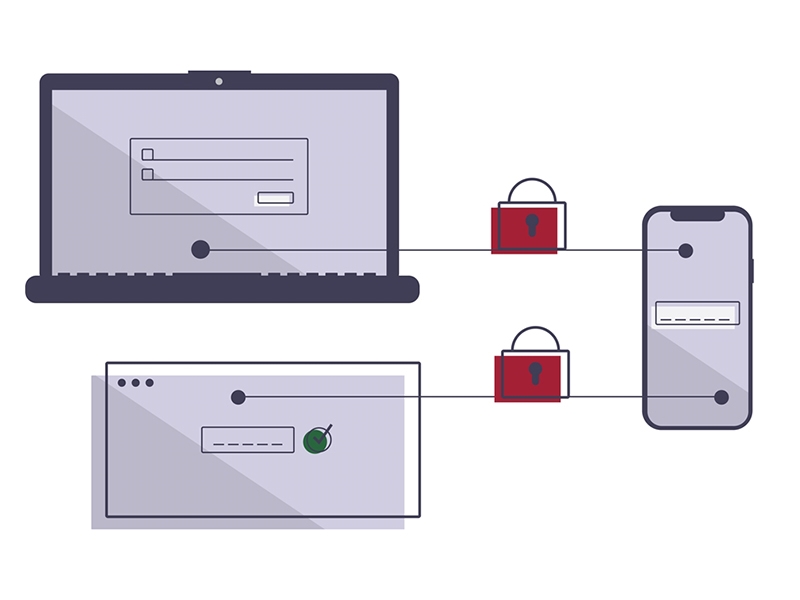Have you ever had to enter a code that you received by email or text to log in to an account? This is one example of multi-factor authentication. Most people have likely used multi-factor authentication before but may not have known its official name or even its purpose. MFA requires users to enter their credentials in more than one way to log in or access their account. There are five different factors that can be combined for use of MFA:
-
Something you know (username and password)
-
Something you have (an item the user physically carries with them)
-
Something you are (biometrics: fingerprints, face scan, etc.)
-
Somewhere you are (geo location, on premises)
-
Something you do (keystroke patterns)
MFA is a useful tool that provides an added layer of protection to your accounts. Enabling MFA ensures that unauthorized users cannot access your account or information without the codes that are sent directly to your device, email, phone number, etc. To be effective, it is imperative that you do not share your MFA codes with anyone. Please note that the university will never ask for your MFA codes or passwords.
Devices and accounts that do not have MFA enabled are at a much higher risk of being targeted, since all that is required to log in is a username and password. If your login credentials are compromised, your account and any information or data stored there will be as well. Enabling MFA will ensure no one is allowed to access your account without a combination of the items listed above.
Setting up MFA on your devices is a quick and easy process that will increase the security of your accounts and information. Make sure your security information and security settings are up to date. For additional assistance, please contact the IT Help Desk online or at 479-575-2905.
October is National Cybersecurity Awareness Month! The month of October is dedicated to providing resources and awareness to help people around the country stay safe online. Everyone can take simple steps to protect themselves when using technology and the internet such as identifying and reporting phishing emails, using MFA and keeping your software updated. For more tips and information on how you can stay cyber safe, visit the IT Services cybersecurity checklist or the Cybersecurity & Infrastructure Security Agency (CISA).
Topics
Contacts
Ele Powell, assistant director of administrative communications
Division of Finance and Administration
479-718-1918, elep@uark.edu
